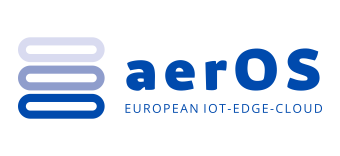aerOS minitrack in HICSS57 – Call for papers
8 April 2023
Minitrack in Cognitive Cloud Continuum Ecosystems: Theory and Practice (HICSS57 co-organised by aerOS and ASSIST-IoT projects as part of the Hawaii International Conference on System Sciences (HICSS)), Honolulu, Hawaii, January 3-6, 2024. Call for papers opens soon. Submission deadline 15 June 2023.
CALL FOR PAPERS
Cognitive Cloud Continuum Ecosystems: Theory and Practice, Honolulu, Hawaii, January 3-6, 2024 – part of the Hawaii International Conference on System Sciences (HICSS)), Honolulu, Hawaii, January 3-6, 2024. HICSS57 Minitrack co-organised by aerOS and ASSIST-IoT projects. More info here: https://hicss.hawaii.edu/tracks-57/software-technology/#cognitive-cloud-continuum-ecosystems-theory-and-practice-minitrack
Call for papers is now open. Deadline submission June 15, 2023 | 11:59 pm HST.
Cognitive Cloud is an enhanced Cloud-Fog-Edge system that is capable of sensing its environment, learning from it, and opportunistically and dynamically adapting its computational loads to the user intents. Here, the core enabling technologies, for management of resources, services and data are AI/ML techniques, which infuse the cognitive aspects into the continuum.
This minitrack intends to solicit papers that discuss the theoretical and practical aspects of Cognitive Cloud Ecosystems from a system perspective. Topics of interest include:
Architectures for the Cognitive Cloud for systems that are user-aware, self-aware and (semi-)autonomous; address the need for real-time capable solutions; and solve performance challenges, such as data streaming and
filtering near/at the edge, overcoming latency and network constraints
Service mesh networking that controls service-to-service communication across cognitive cloud ecosystem
Orchestration of (sub)systems in the Cognitive Cloud, possibly subdivided into orchestration of resources, services, and data (including zero-touch approaches)
Use of distributed AI across the Cognitive Cloud to make it intelligent
Interconnection of Cognitive Clouds with Data Spaces
Security, privacy and trust (likely, by design) in a multi-tenet de-centralized systems, possibly with no single point of governance
Interoperability across the Cognitive Cloud Ecosystems to cope with the increased complexity of vast numbers of heterogeneous devices, while supporting demands for data sharing combined with the demand for protection of privacy
Role of intelligent devices, drawing from applicable results in micro/nano/bio technologies, including resource-aware hardware/software concepts, low power processor platforms integrating computing, networking, storage and acceleration elements, new communication schemes and topologies that range from the cloud continuum towards mesh, and securing computing and communication at device level with constrained resources
Tactile/contextual Internet of Things based on human-centric sensing/actuating, augmented/virtual reality and new service capabilities such as integration with parallel and opportunistic computing capabilities, neuromorphic and contextual computing.
Energy aware systems from the perspective of systems integration for efficient deployment of services and use of resources in the Cognitive Cloud
Strategies for the deployment of hyper-distributed applications in the Cognitive Cloud from services description to dynamic reorganization of the deployment
Extreme data processing applications and Frugal AI in the cognitive cloud
Applications of Cognitive Cloud including implementation of ecosystems, pilots, lessons learned, barriers, etc.
Important Dates
Submission Deadline: June 15, 2023 | 11:59 pm HST
Notification of Acceptance/Rejection: August 17, 2023 | 11:59 pm HST
Deadline for Submission of Final Manuscript for Publication: September 22, 2023 | 11:59 pm HST
Deadline for at least one author to register for HICSS-57: October 1, 2023 | 11:59 pm HST
Submission instructions are available at https://hicss.hawaii.edu/authors/
Minitrack Co-Chairs
Marcin Paprzycki (Primary Contact)
Polish Academy of Sciences
marcin.paprzycki@ibspan.waw.pl
Maria Ganzha
Polish Academy of Sciences
m.ganzha@mini.pw.edu.pl
Harilaos Koumaras
Institute of Informatics and Telecommunications
koumaras@iit.demokritos.gr
Carlos Palau
Univeristat Politecnica de Valencia
cpalau@dcom.upv.es



